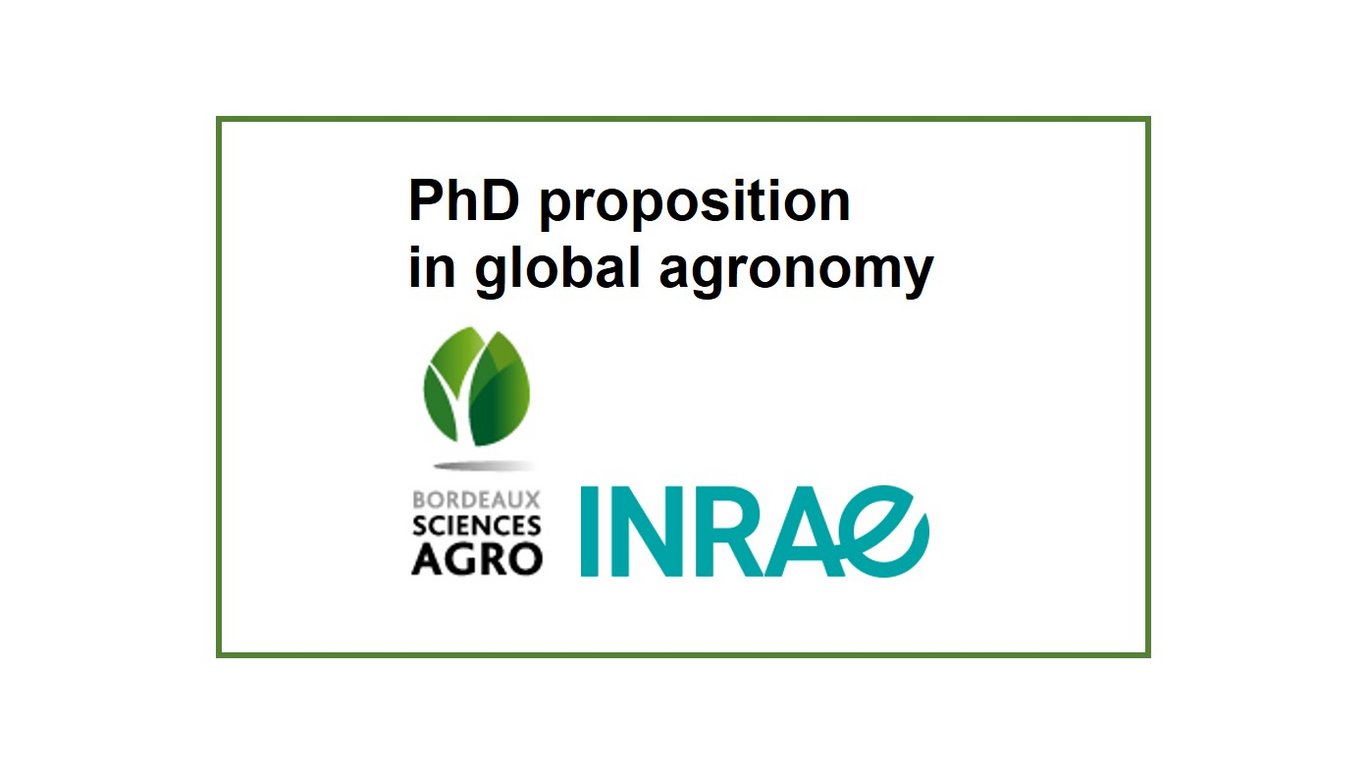PhD proposition in global agronomy
A PhD project is proposed on the topic: Would organic farming expansion and reduced animal production be compatible? A global analysis based on nitrogen cycling, land-use changes and greenhouse gas emissions. Apply before 15 November 2021.

Context
Agricultural food production is responsible of roughly one quarter of global anthropogenic greenhouse gas (GHG) emissions. Curbing those emissions is key to achieve the Paris Agreement objectives. Organic farming has good potential to achieve low area emission intensity. However, due to its lower yields, concerns have raised that organic farming expansion may drive significant land-use changes and related CO2 emissions. In parallel, there is life cycle assessment-based evidence that food diets low in animal-sourced products help alleviate agricultural land requirements and GHG emissions. However, very few studies have considered the combination of both levers and simulated mechanistically their consequences for land-use change and related GHG emissions. In particular, the effect of reduced animal population on nitrogen (N) supply as manure – a critical resource for organic cropping systems – and its resulting consequences on organic food production has never been assessed thoroughly.
Objectives
The PhD aims at exploring to what extent organic farming expansion in Europe, combined with changes in food and feed consumption, may affect land use worldwide and related GHG emission. In particular, this PhD will deliver additional knowledge on the compatibility between a climate neutral organic farming objective and the current lobbying (whatever the reasons) for more vegetal-rich or exclusively plant-based diets. The PhD project will be based upon the combination of two spatially-explicit models simulating respectively biomass, nitrogen and carbon flows within organic systems (GOANIM model), and agricultural products resource-utilisation balances, international trade and land-use changes (GlobAgri model). The PhD will combine both models to simulate a set of European-based scenarios including alternative assumptions on organic farming development (rate of expansion and type of farming), changes in feed rations (from current to low opportunity cost feed) and changes in food diets (from current to vegetarian and vegan diets).
Read more - click here
How to apply?
Any student interested in this proposal is invited to send his/her CV and a motivation letter to Thomas Nesme (thomas.nesme@agro-bordeaux.fr) and Chantal Le Mouël (chantal.le-mouel@inrae.fr) before November 15th, 2021.